Sunday, February 9, 2020, 3:00pm
Pedar Foss, Professor, Classical Studies, DePauw University, Indiana
Title: When Did Vesuvius Explode?
It has long been held, on the basis of a letter of Pliny the Younger, that Mt. Vesuvius erupted on 24 August, AD 79. But after excavators began to work at the sites of Herculaneum at Pompeii, some scholars expressed doubts, suggesting a date later in the autumn of that year. Debate has increased with recent paleo-environmental research and the find of an inscription last year. Scholars have divided over a topic that might appear trivial—after all, most archaeological sites never enjoy such a precise date. But it is an excellent case study for testing our methods of historical and archaeological research, and I will lift the lid on those methods.
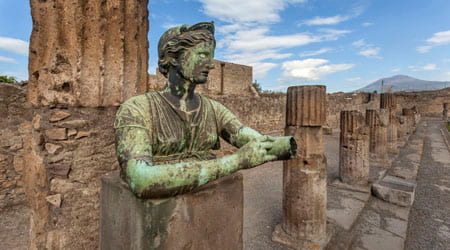
As part of a book project (Pliny and the Destruction of Vesuvius, Routledge 2021), I have collated, for the first time, every manuscript and printed edition of Pliny’s Letters 6.16 and 6.20, in order to track and analyze the literary tradition of the date through its surviving evidence. I have also compiled a reconstruction of the pre-eruption landscape and coastline, and collected all recent volcanological and archaeological research about the event. Having made a multidisciplinary reconstruction of what happened over the two terrifying days of the eruption, I can now offer an answer to the question of when Vesuvius exploded.
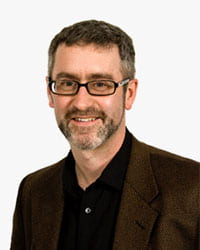 Pedar W. Foss is Professor of Classical Studies at DePauw University in Greencastle, Indiana, where he has worked since 1999. As a teacher, he conducts courses in Latin, ancient history and literature, and art and archaeology. He received his B.A. in Chemistry and Classics from Gustavus Adolphus College, and his M.A. and Ph.D. in Classical Art and Archaeology from the University of Michigan-Ann Arbor; he subsequently taught at the University of Cincinnati and at Stanford. His research concerns domestic life at Pompeii, landscape archaeology, and Geographic Information Systems. He has edited for the Journal of Roman Archaeology and was co-editor of the book reviews for the American Journal of Archaeology from 2008-2011. He has lived, studied, and worked for extended periods in Greece, Italy, Tunisia, Turkey, and England. He is a fanatical follower of football/futbol/soccer.
Pedar W. Foss is Professor of Classical Studies at DePauw University in Greencastle, Indiana, where he has worked since 1999. As a teacher, he conducts courses in Latin, ancient history and literature, and art and archaeology. He received his B.A. in Chemistry and Classics from Gustavus Adolphus College, and his M.A. and Ph.D. in Classical Art and Archaeology from the University of Michigan-Ann Arbor; he subsequently taught at the University of Cincinnati and at Stanford. His research concerns domestic life at Pompeii, landscape archaeology, and Geographic Information Systems. He has edited for the Journal of Roman Archaeology and was co-editor of the book reviews for the American Journal of Archaeology from 2008-2011. He has lived, studied, and worked for extended periods in Greece, Italy, Tunisia, Turkey, and England. He is a fanatical follower of football/futbol/soccer.
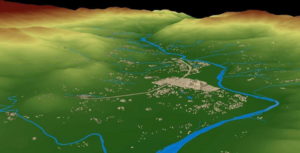
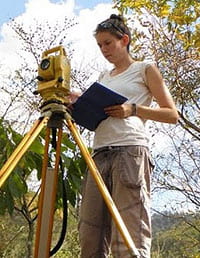
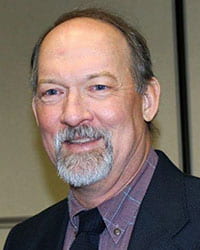 Michael M. Gregory is an archaeologist with SNA International and a Board Member of the non-profit Camp Douglas Restoration Foundation, Inc. He holds degrees from Arizona State University (PhD and MA) and Washington and Lee University (BS). Being a historical archaeologist by choice, his primary research interests are the early suburbanization of Chicago, economic practices of 19th-century rural America, and Civil War prisoner-of-war camps. As a member of SNA International, he directs forensic recovery and investigative excavations for the Defense POW/MIA Accounting Agency (DPAA) in Southeast Asia. Prior to this position, he taught at DePaul University and directed Cultural Resources Management studies in the American Midwest, Southwest, and Mid-Atlantic regions. Over his varied career, the DPAA missions have proved to be the most challenging, engaging, and fulfilling/discouraging work he has undertaken.
Michael M. Gregory is an archaeologist with SNA International and a Board Member of the non-profit Camp Douglas Restoration Foundation, Inc. He holds degrees from Arizona State University (PhD and MA) and Washington and Lee University (BS). Being a historical archaeologist by choice, his primary research interests are the early suburbanization of Chicago, economic practices of 19th-century rural America, and Civil War prisoner-of-war camps. As a member of SNA International, he directs forensic recovery and investigative excavations for the Defense POW/MIA Accounting Agency (DPAA) in Southeast Asia. Prior to this position, he taught at DePaul University and directed Cultural Resources Management studies in the American Midwest, Southwest, and Mid-Atlantic regions. Over his varied career, the DPAA missions have proved to be the most challenging, engaging, and fulfilling/discouraging work he has undertaken.